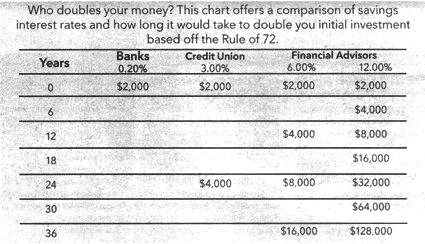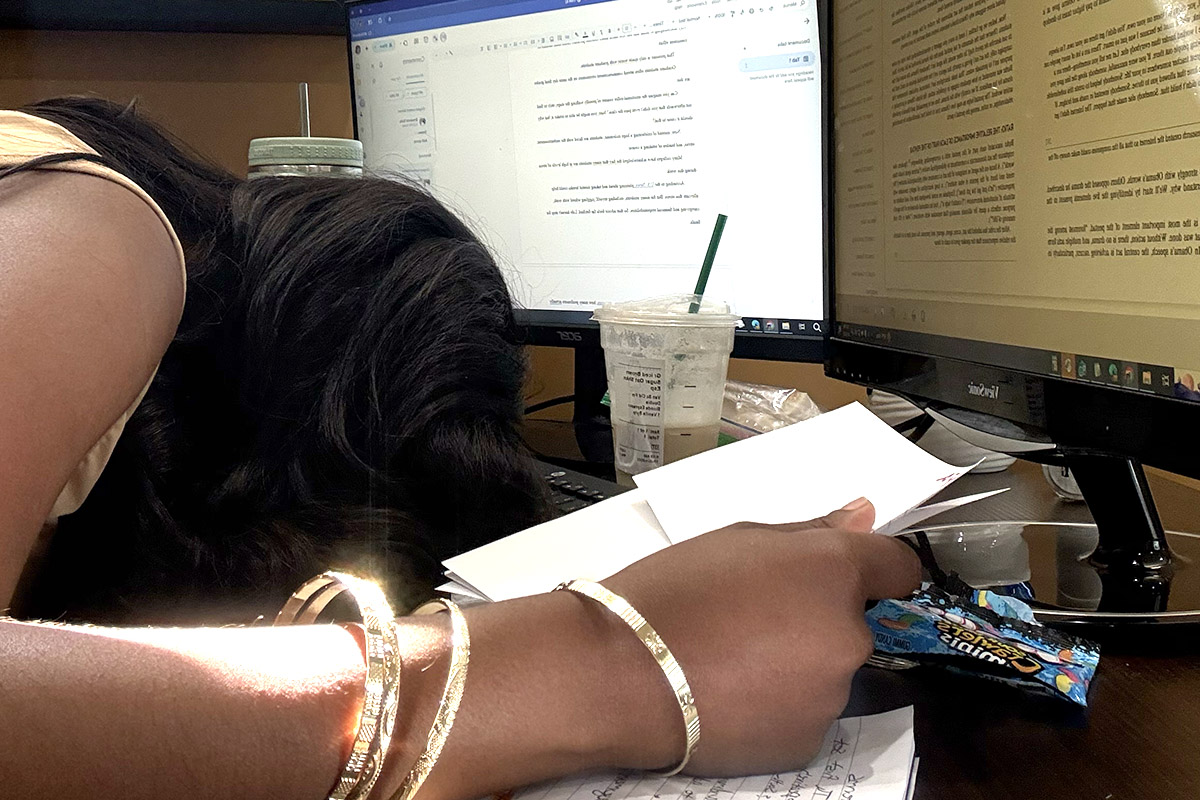Written by: Daniel Felix
They say, “What you don’t know can’t hurt you, but from a financial standpoint what you don’t know can kill you,” adds Art Carreon NSD of PFS.
No one has the time to wait on starting to save money but with a little insight on how saving your money works, you’ll have a better understanding of where to take your money.
And no it’s not under your mattress.
For starters let’s see what money we can save. Then see where we should take our money.
Start by setting yourself up for success. If you’re in some form of debt. First work towards getting out of debt. “You can’t have any kind of good savings if you’re still in debt,” adds Charles Wyckoff Business Professor at RIverside City College.
Furthermore if you only have your coffee money, to put aside, then yes the bank is where you want to start. However the trick is to not stay with the bank. Yes the bank is where we naturally go for anything involving money. They provide the feeling of safety and reliability.
However you’ll think twice about staying. After you see what the banks will give you on your own money. All banks as a whole, are the same, when it comes to saving your money. All banks in general will gladly open you a savings account and you will receive 0.2 rate of return back on your money, according to a recent savings and investment page from Chase Bank. Which is virtually the same as Wells Fargo Bank, Bank of America and Citibank and every other bank.
The next best option is to take your money to a credit union, a few of them are Altura Credit Union, Schoolsfirst Credit Union and Arrowhead Credit Union. These institutions tend to think more of the customers than themselves and offer higher rates of return because they are independently owned.
The best place to invest your money would be with a financial advisor, a few of them are Franklin Templeton Investments, Pioneer Investors, and Legg Mason Global Asset Management. Financial Advisors can get you the best rate of return because they don’t generalize their accounts, and are investing people money directly into the Mutual Funds for them.
With the simple Rule of 72, created by Luca Pacioli in 1494, we see exactly how much money we would be able to get in an investment. Let’s say you are investing 2000 dollars for 48 years. At the bank’s 0.2 rate of return here is how it works; you divide your interest rate into 72 and it will show you how long it take for your money to double. Just for your money to double once it would take 360 years for your money to double.
The average age of an American today lives to 85, according to our Social Security Services. Even with that length of time no one, can wait 360 years for their money to double.
With that simple rule you can see, how important it is to look for the highest interest rate. This diagram below shows you exactly how some of them work (from left to right: Traditional Banks, Credit Unions and Financial Advisers.

In a 2011 Forbes article “How Savings Accounts Grow From The Magic Of Compound Interest” By April Dykman, we are shown another example of why it’s important to start saving while you’re young. In her section “Compound Interest Favors the Young.” She tells how compound interest works and then gives us an example of the Rule of 72. April adds “ Take the example of Sarah’s initial $5,000 investment. Even if she stopped contributing new money, after two years she would have $5,307.99, After investing that $5,000 for 40% at a three percent interest rate, she’ll have $16,526.42 total.”
When Art Carreon was shown this rule 20 years ago, he knew right away how huge knowing this simple rule was. Art Carreon is a huge supporter of Mutual Funds and saving for yourself, at a young age.
“Waiting to save money is a tremendous loss. Not only do you have to start saving more on a later date, but you also lose the added benefit of compound interest” he added. Compound Interest works like this, over time the money you invested earns interest and after that your interest earns interest. Albert Einstein once said “The most powerful force in the universe is compound interest. Something that can double then double its double is unstoppable,”
When you take your money to the bank, they invest your money in mutual funds. “Banks have 11 trillion dollars sitting in banks accounts and over the last 100 years mutual funds have averaged a nine percent interest rate. So that means that means on average they are grossing eight percent on your money and are paying you less than one percent back on it.” adds Mr. Carreon. This one simple fact should be proof enough that you shouldn’t stay at the in the long run.
One major problem that we face is that we are not taught financial literacy. Mr. Wyckoff adds “what can be more important than understanding how to build financial security and understanding how to stay out of debt. I feel very strongly about, this class being in your general ed requirements.”
Mr. Wyckoff is right, the average person is hardly ever gonna use the required math they need. Unless their future career field requires it. But no matter what a person does for a living, they will need to know the financial literacy Professors Wyckoffs class and classes like it teach.
“Let’s say you’re buying a five dollar coffee for five days, that’s $20 dollars a week. Which turns into $1,000 a year and later on it’s $30,000 over a period of 30 years.” continues Mr. Wyckoff. Think about all the tiny little habits that we have created over time. Yes they may only be two or five dollars here and there. However that habit turns into a big unnecessary expense.
On the flip side let’s say you started a good saving habit of. Now that little five dollars could have grossed into $500,000. Because of one little switch in your daily habits.
You have to start thinking about the future now.
Start to save what you can today. And even if that means starting at the bank and working your way up to a mutual fund.
Regardless of how, just get some financial education.
Ask yourself do I want to live in a retirement home or do I want to live in a million dollar home? Do I want to get by or do I want to enjoy all this life has to offer?






